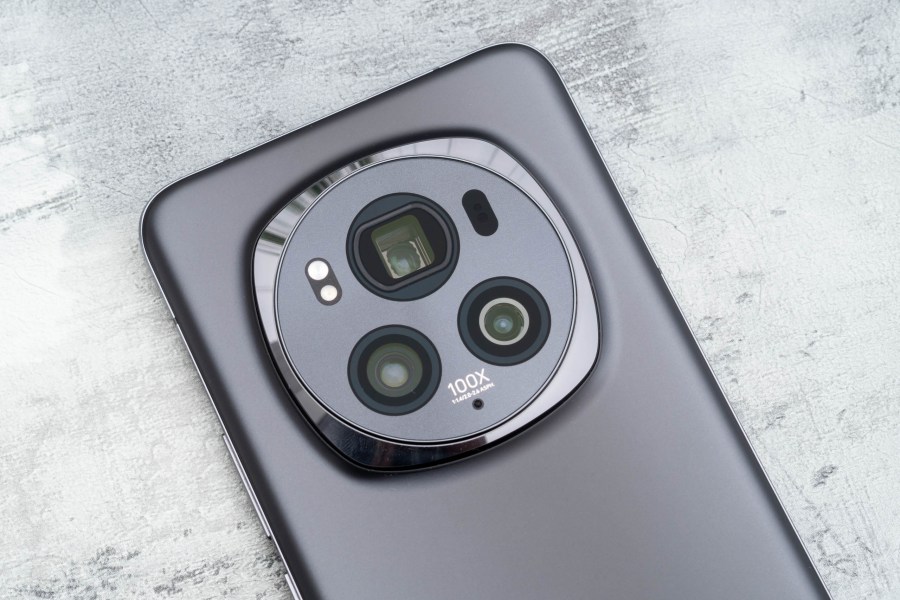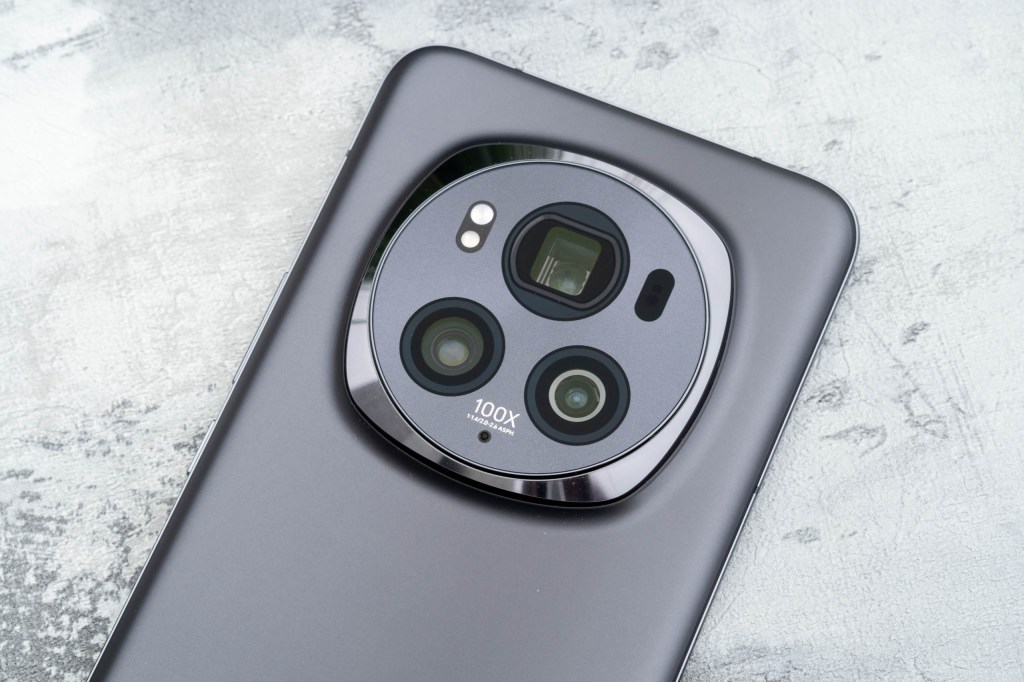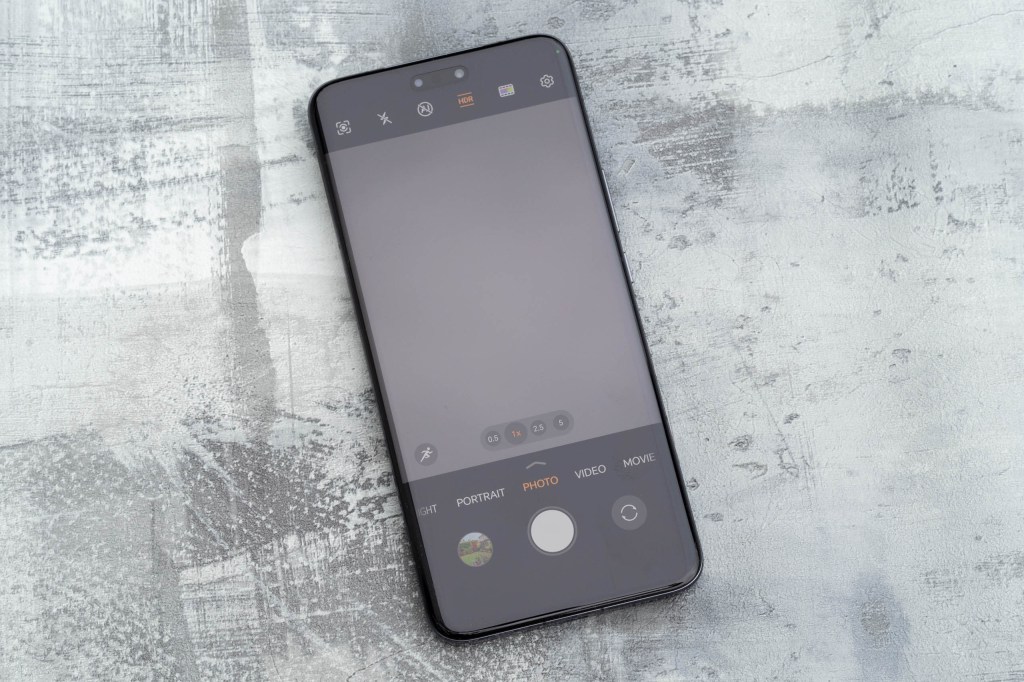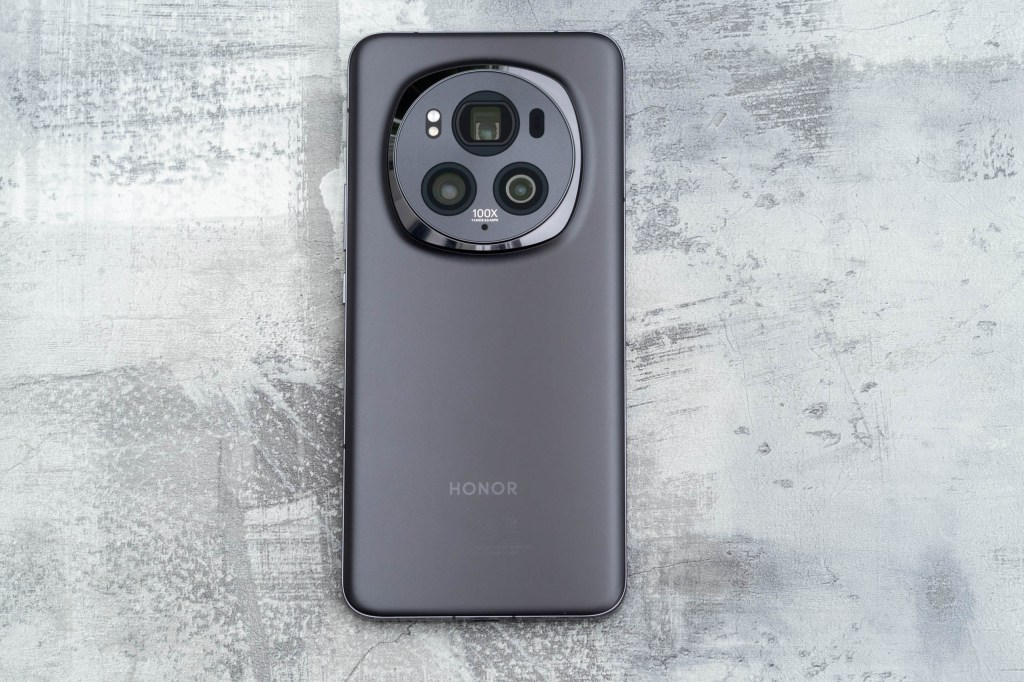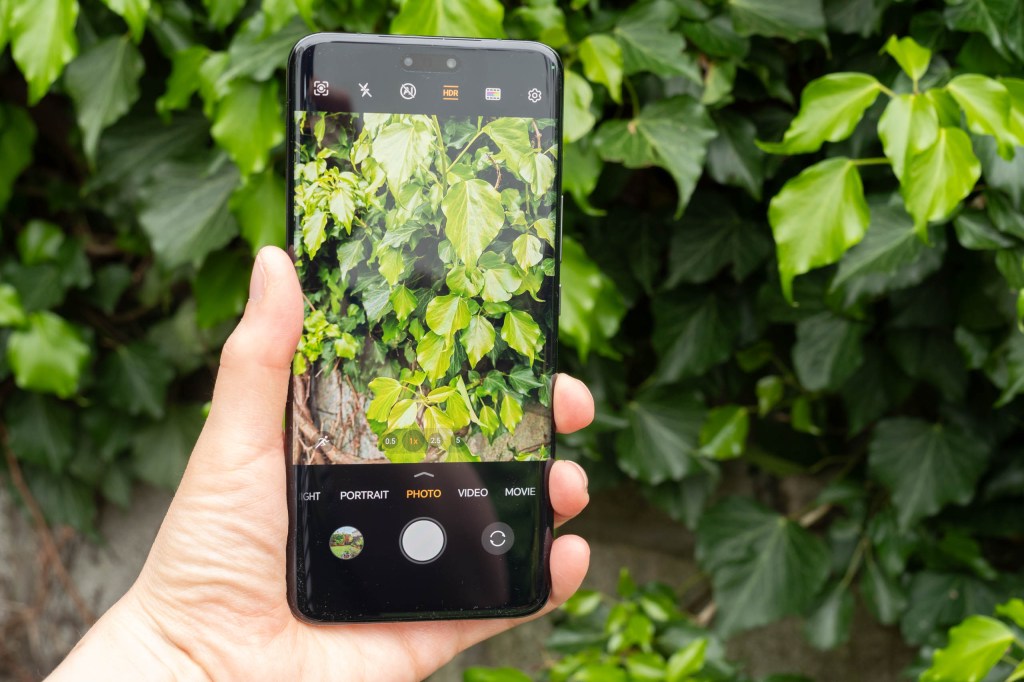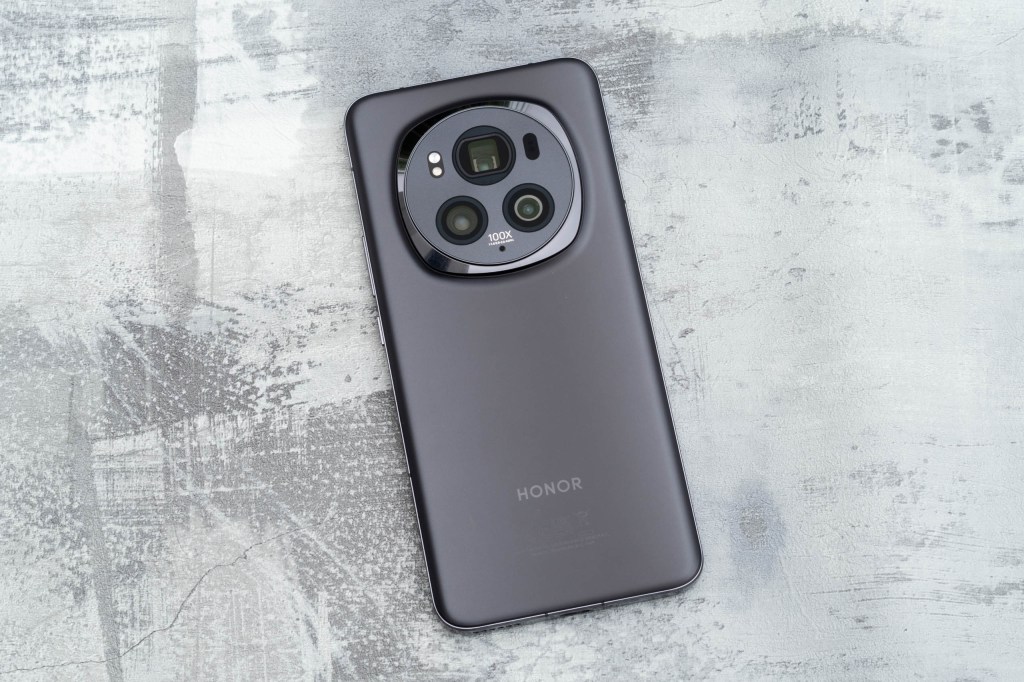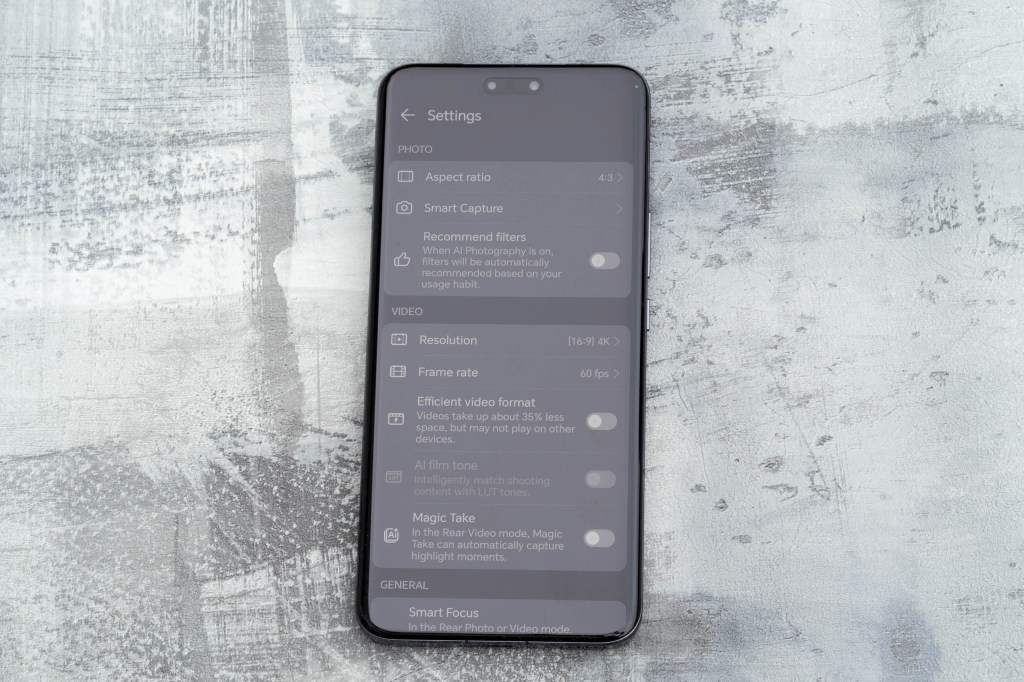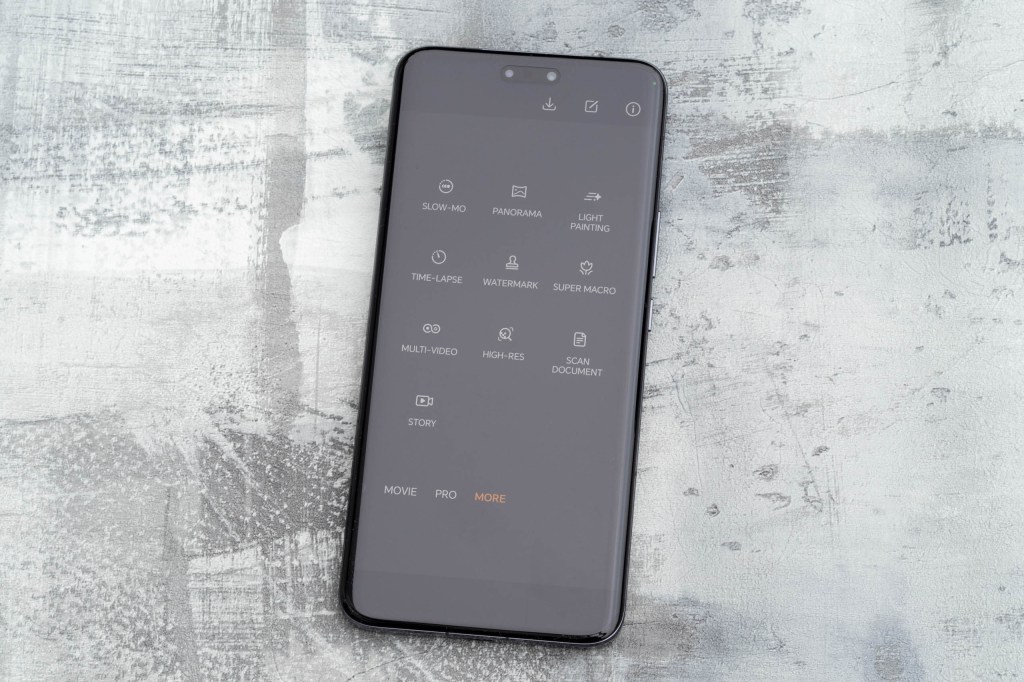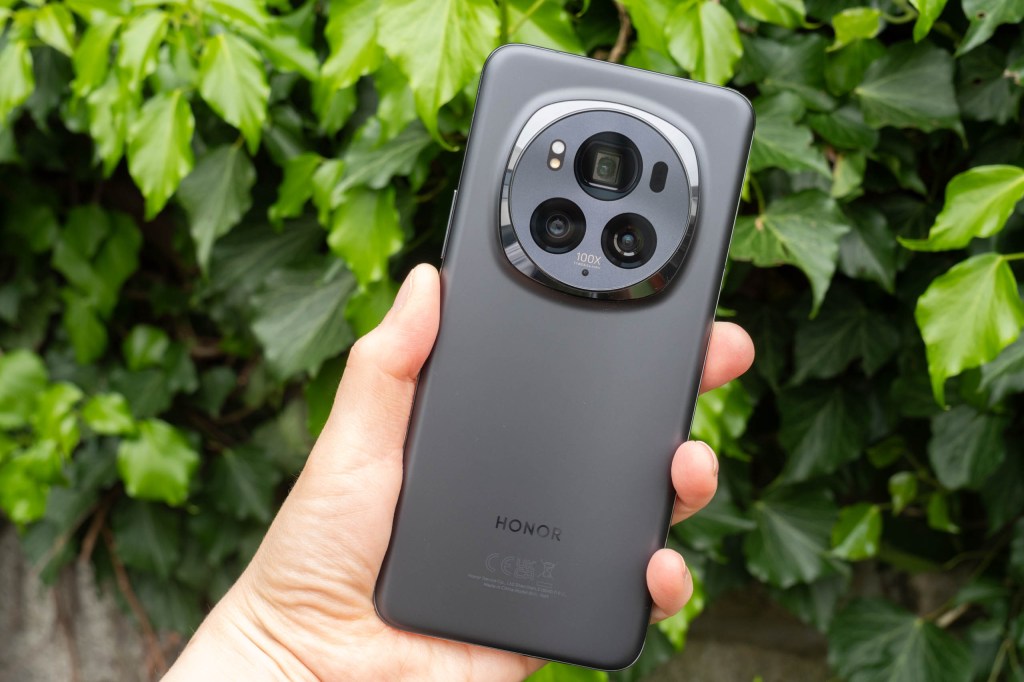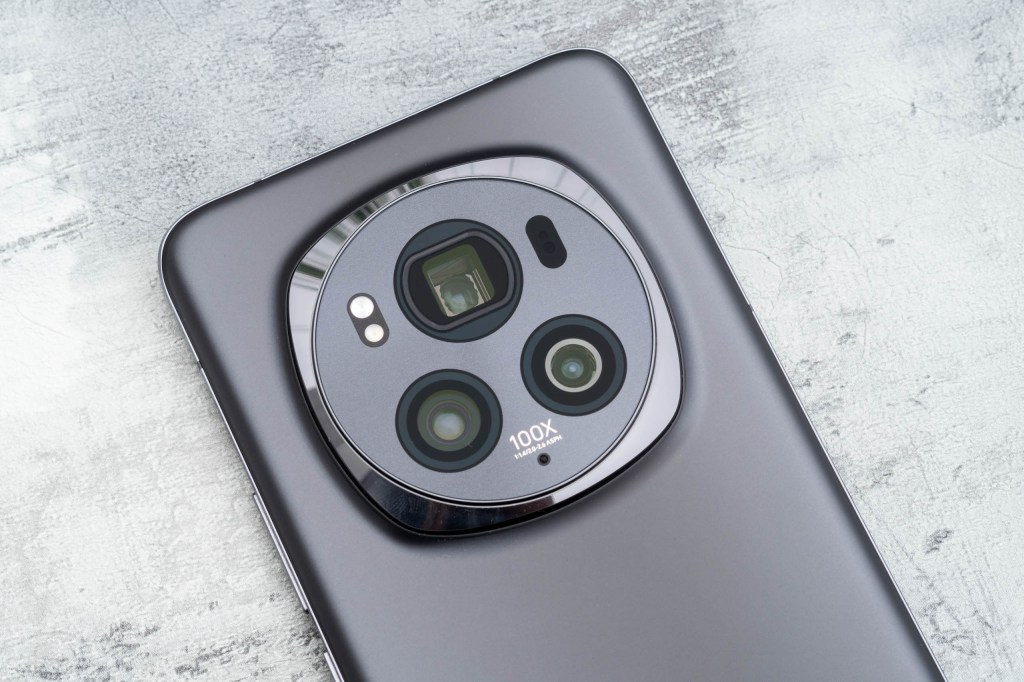Amateur Photographer verdict
The Honor Magic 6 Pro is a genuine high-end smartphone, well-suited to photography, and available for a reasonable price- 3x high-resolution sensors
- Great value
- Excellent screen
- Not available in every market
- 100x digital zoom a gimmick
- One storage size option only
Once the “value” arm of the well-regarded Huawei brand, Honor is now a separate entity which has been producing some of the best camera phones for photography for quite some time now. However, it has kept its “value” ethos, and while models such as the Honor Magic 6 Pro aren’t what we’d call cheap, they rival much more expensive flagships on the market.
Honor Magic 6 Pro at a glance:
- $1,099 / £900
- 50MP 23mm equivalent main camera, f/1.4-2.0 auto aperture
- 50MP 13mm equivalent ultrawide camera, f/2.0
- 180MP 2.5x periscope telephoto camera, f/2.6
- 4K video at 30/60fps
- 1080p video at 30/60/120/240fps
- 6.8-inch, 2800 x 1800 pixels, 5000 nits peak brightness, 120Hz LTPO OLED screen
- Operating system – Magic OS 8.0, based on Android 15
- Processor – Qualcomm Snapdragon 8 Gen 3
Despite having a lower price, you don’t have to compromise too much on specs. There’s a triple lens array, each with high-resolution sensors, 4K video, a high-quality screen and an impressive battery on board here.
The Honor Magic 6 Pro follows on from the Honor Magic 5 Pro, which we reviewed in 2023 and found to be an excellent performer. Improvements for the 6 Pro aren’t revolutionary, but they include a brighter screen, a newer processor, a bigger battery and a new 2.5x periscope lens with a 180MP sensor.
Let’s discover what this means in real-world results.
How we test phones
We review smartphones from the perspective of choosing one for its photography and camera performance. We look at what the Honor Magic6 Pro offers, and the features included for photography and video, paying particular attention to the cameras on the phone, photo editing capabilities, as well as the output from each different lens.
Honor Magic 6 Pro Features
While the Honor Magic 5 Pro had three 50MP sensors, the Magic 6 Pro goes one further by having two 50MP sensors plus a new 180MP sensor behind the 2.5x periscope lens. This is one of the highest resolutions on the market, and potentially makes it well-suited to zooming at higher digital ratios and still preserving plenty of detail – we’ll take a closer look at that later on.
The main 50MP sensor has a 23mm equivalent lens in front of it. This 50MP/23mm combination is the same as the 5 Pro (although the sensor size on the newer model is marginally smaller). However, new for this model is a variable f/1.4-2.0 aperture, compared to the f/1.6 fixed aperture of the previous model. In normal shooting modes the aperture will be automatically selected, but you can control it yourself in special pro modes. These apertures aren’t particularly far apart – so it seems a fairly strange choice, compared to choosing between say f/1.4 and f/4.0.
Joining the main sensor is an ultrawide, also with a 50MP sensor. The equivalent focal length is 13mm, with an f/2 aperture. The 180MP 2.5x (68mm equivalent) periscope camera has an f/2.6 lens and is also equipped with OIS (optical image stabilisation).
Topping off the photography specs is the ability to shoot at 4K up to 60fps, plus a 50MP f/2.0 selfie camera which has AF and can also shoot video at 4K.
Other interesting specifications include a 6.8-inch OLED screen, with FHD+ resolution (2800 x 1280 pixels), which has a maximum brightness of 5000 nits – one of the brightest on the market.
The phone is only available in one memory size – 512GB. That should be more than enough for most, and is significantly more than the lowest available from other flagships (which usually either start at 128GB or 256GB) so you shouldn’t feel short changed.
A 5,6000 mAh battery is an improvement over its predecessor – and much larger than most others. This should translate into better battery performance. One thing to note, though, is that while the Honor Magic 6 Pro is capable of both “fast” charging and wireless charging, there is no longer a fast charger supplied in the box – something which did come with the Magic 5 Pro. If you don’t already have one, then you’ll need to pay extra for that specific feature. It will charge at regular speeds with regular USB-C charging cables and chargers.
Handling and Design
The design of the Magic 6 Pro will be familiar to anyone who has handled the Magic 5 Pro. With its 6.8-inch screen, it’s on the large side, being the same as the Samsung Galaxy S24 Ultra and a little bigger than the 6.7” iPhone 15 Pro Max.
Some favour large smartphones, while others prefer smaller ones. Larger phone lovers are in luck here, and there’s no denying that it’s great for looking at photos and videos. The screen is also super bright, with a maximum 5000 nits brightness – significantly brighter than its predecessor, and most smartphones on the market.
Like the Magic 5 Pro, the display is a “quad-curved floating screen” – essentially almost all of the front of the screen is taken up by the display with just a small cut-out for the selfie camera – this is now in the middle of the top of the screen, rather than to the side.
Otherwise, the phone has an aesthetically pleasing design, with nicely curved edges and a sleek finish. The camera cut out on the back of the phone isn’t exactly subtle – but it’s quite striking and suggests that it means serious business for photography. We’ve been using the “Black” colour way, which is smart and has a nice sheen. The Epi Green appears to have an attractive texture which is a bit more exciting, depending on your preferences.
There is IP68 water and dust resistance, meaning the phone should withstand a dunking. The screen has a “NanoCrystal Shield” which promises “drop resistance” which is 10x better than its predecessor. During my time with it, it withstood plenty of normal real-world usage, though admittedly I didn’t drop it onto anything hard.
Native Camera App
Like many other Android smartphones, the native camera app of the Honor Magic 6 Pro offers a lot to experiment with, utilising a variety of shooting modes.
By default, you’ll be shooting in Photo mode. Here you can access all three lenses, with an additional 5x option directly selectable. You can also pinch to zoom to 100x digitally, too. Also found in this shooting mode is options for HDR shooting, AI subject recognition, different colour modes (Natural, Vibrant, Authentic), moving photo and so on. You an also turn on things like a grid or a horizontal level to help with composition.
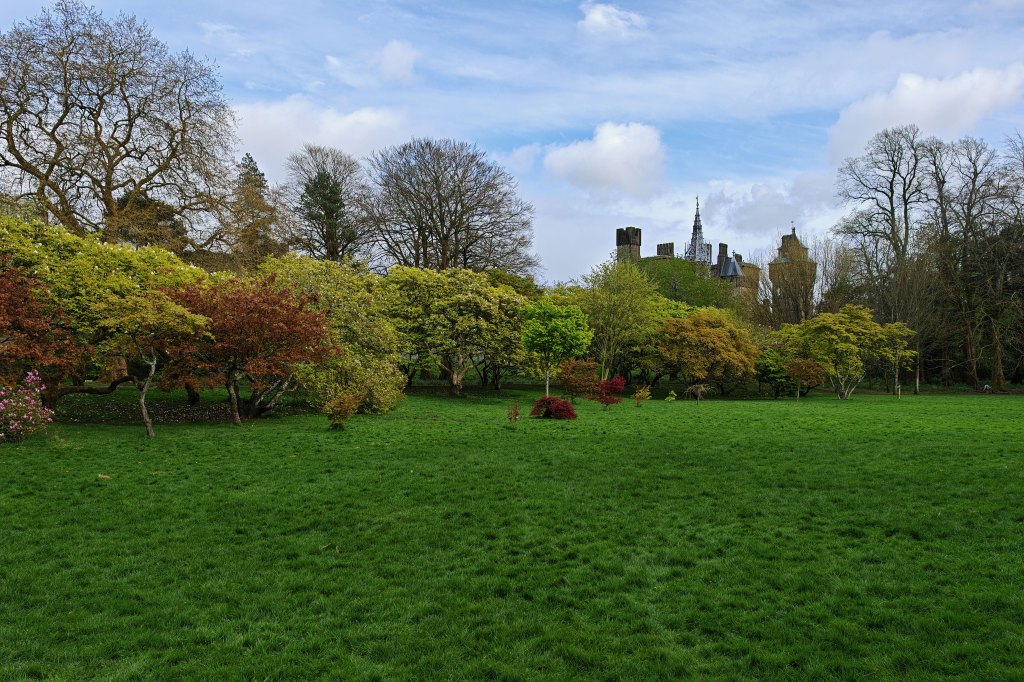
It’s also in this mode that an automatic macro function should appear if you bring the camera close to a subject. If shooting in the 1x lens, it will work by switching to the ultrawide lens and then applying a crop to maintain the same focal length. But you can also shoot macro with the 2.5x or 5x options, where the phone will sometimes switch to the main lens and again crop to match the focal length originally selected.
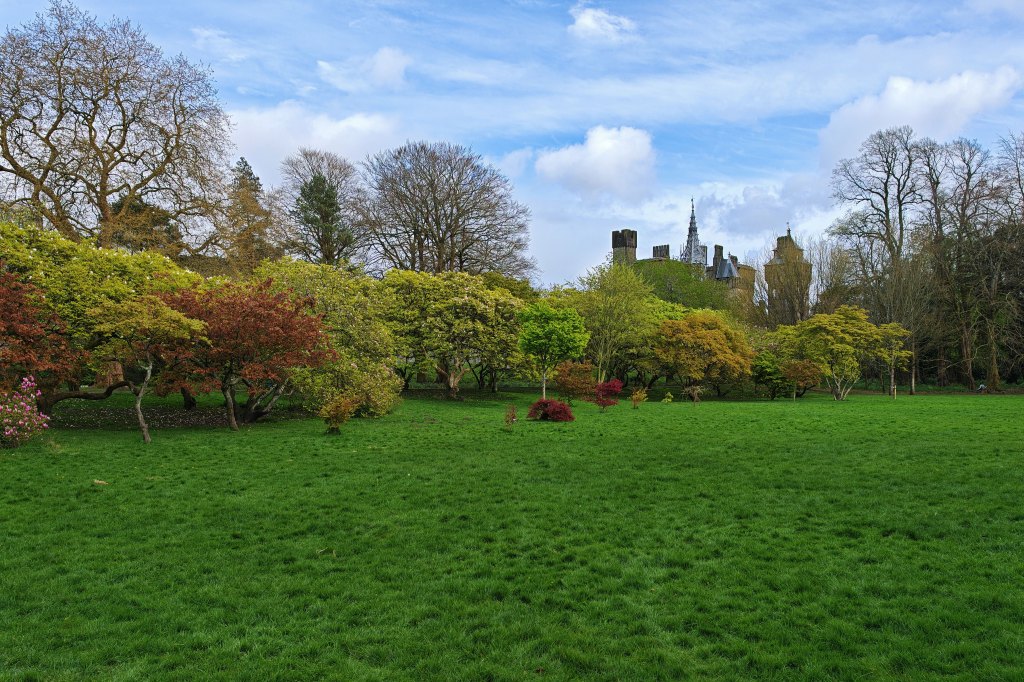
There’s also “Motion Sensing Capture”, which uses AI to detect motion taking place in the scene to deploy a high-speed shutter to better capture things like running, jumping and animals moving quickly.
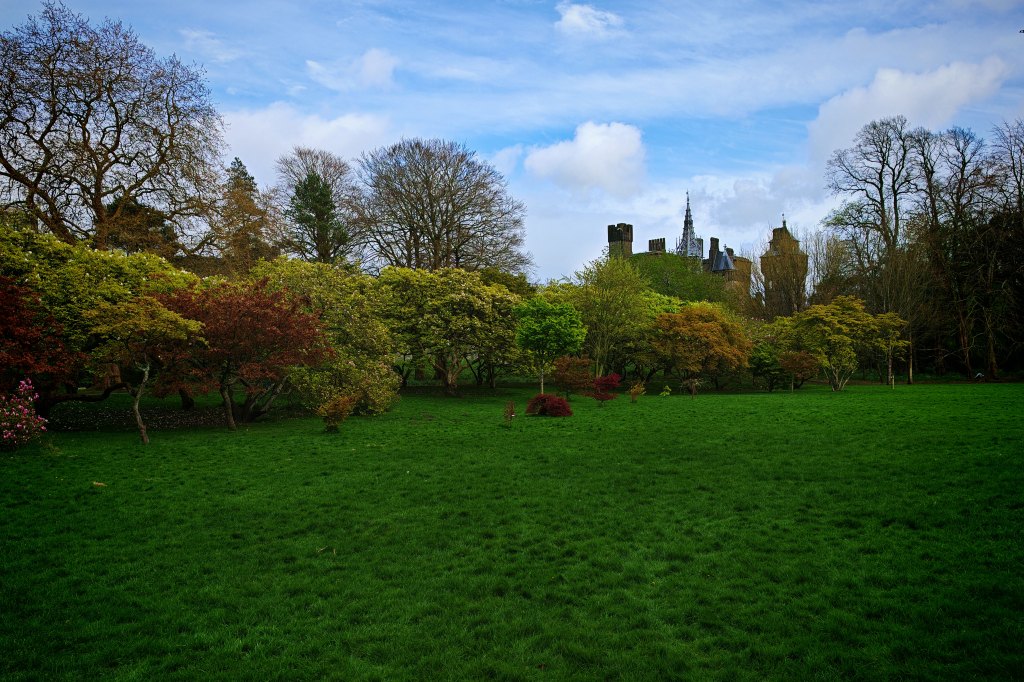
Portrait mode allows you to create shallow depth of field pictures of people and pets. You can shoot with 1x, 2x, 2.5x or 5x options, as well as adjust the strength of the blur, and switch on “beauty” options to smooth out skin and so on. A Night mode can be used in low-light situations, while an Aperture mode is similar to Portrait mode but can be used with any subject – there’s only one focal length available here however.
Advanced photographers might be interested in the “Pro” mode, which gives you control over a number of parameters, including shutter speed, metering, focus mode, white balance and if shooting with the 1x lens, aperture (although only between f/1.4 and f/2). A video mode is a straightforward choice for recording short video clips, while a Movie mode gives more advanced control, with options including Log mode, and LUTs for different effects.
A few more shooting modes including slow-mo, panoramas time-lapse, high-res, light painting and super macro can also be accessed via a “More” tab in the native camera app.
Quality and Performance
We found that the Magic 5 Pro was excellent in a variety of situations and, happily, the Magic 6 Pro builds on that, although it should be said that when comparing images from each side by side, it is difficult to detect much difference.
The best results can be seen from the 1x sensor/lens, and as we tend to see, when in good light and at normal printing sizes. The overall impression of detail is very good, with even examining closely at full size showing good results.


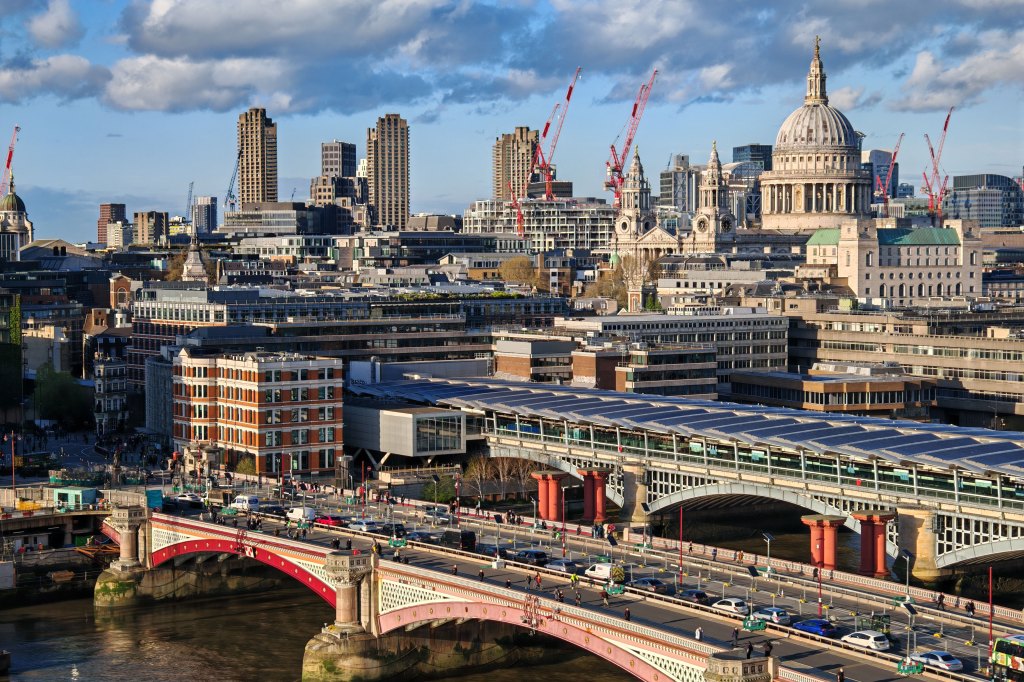

Good results are also obtained from the ultra-wide angle, with this being a great choice for landscape and interior shots. Distortion isn’t much of a problem, either. The new 180MP 2.5x zoom lens is also very good, with the 68mm equivalent focal length being very usable in a variety of different situations. That huge pixel count also helps to produce good results at the 5x digital zoom point. 10x zoom is also very usable, but beyond this the results are a lot smudgier. A huge “100x” is written on the camera unit of the Magic 6 Pro, but, as we typically find with almost every smartphone, it’s not a setting you are likely to use: it is more of a marketing gimmick.

Colours directly from the Honor Magic 6 Pro are great, being nicely vibrant and punchy but generally staying on the side of realism. Most of the time I used the default “Vibrant” setting, but there’s also a “Natural” option for a slightly more muted look, and an “Authentic” option, which, if anything is the least authentic of the three – it adds a strong vignette and deepens contrast, but regardless it’s fun to experiment with. Further good news is that colours are pretty evenly matched between the three lenses, too.
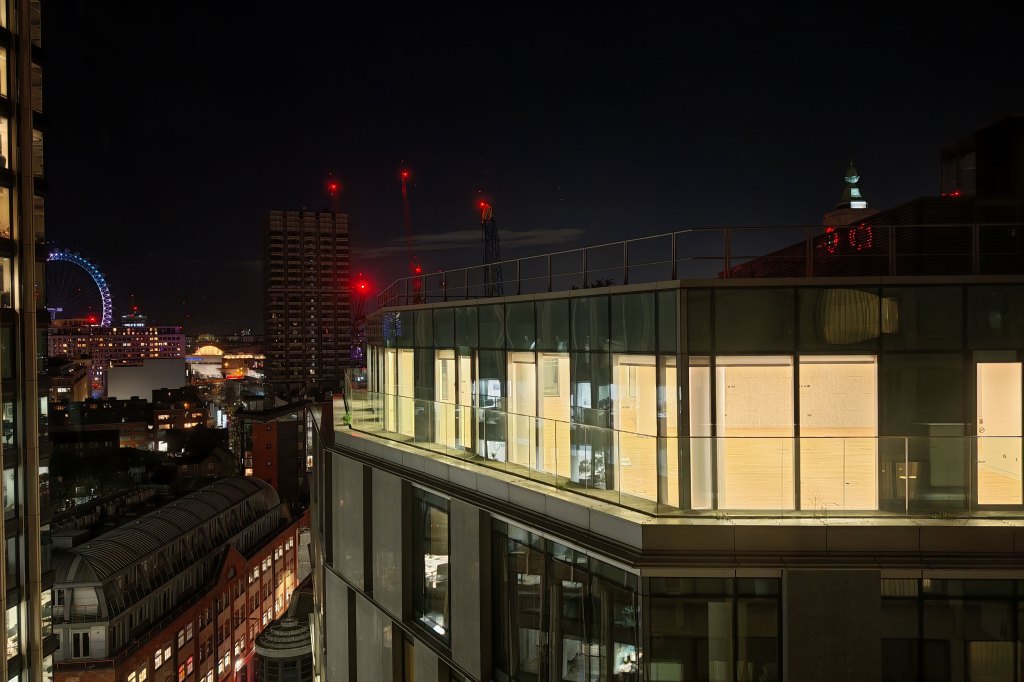
The Honor Magic 6 Pro’s lens now has variable aperture of f/1.4 or f/2.0, which in the normal shooting mode the phone will select by itself. In good light, f/2.0 will be selected, while f/1.4 will activate if the light is lower. Overall, it doesn’t seem to make a huge amount of difference to image quality in decent light which aperture is used, but the wider aperture in low light helps to keep ISO reasonably low and reduce smudging. Indeed, images taken in low light with the main lens show an impressive amount of detail in dark areas. The aperture is wider than many others on the market, including the Samsung Galaxy S24 Ultra, iPhone 15 Pro Max and Google Pixel 8 Pro, which all have f/1.7 or f/1.8 lenses.
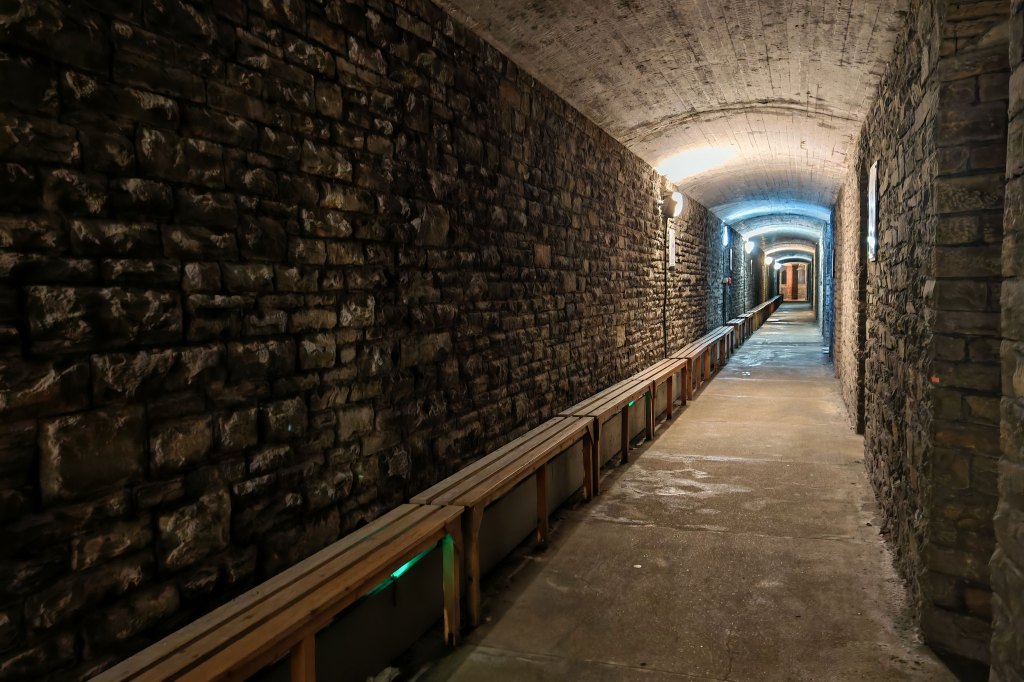
As for the other lenses, the ultrawide is also pretty good in low light, especially if you’re only going to be sharing or viewing at normal printing sizes. The 2.5x lens also puts in a very usable performance, albeit with a noticeable loss of detail when you examine closely.


Portrait mode does well to produce blurred background people shots. It’s not the best I’ve ever seen, but it’s far from the worst. At social media sizes they look great, but you will notice some obvious fake outlining around hairlines and so on – especially if the hair is quite fussy. You can also use it for animals, where the same principle applies – so it works very well for smooth-haired breeds like mine.

Having AF sets the selfie camera on the Honor Magic 6 Pro apart from many others out there. As a result, it produces very good selfies. You can also use the Portrait mode with the selfie camera to blur your background.

The Magic 6 Pro is a great choice for macro and macro-type subjects. If you bring the camera close to a subject while in the 1x lens, macro mode will automatically engage, swapping to the ultrawide lens and cropping. This can be good for some subjects, but you can also shoot macros with the 2.5x/5x options selected, at which point the lens seems switch to the main sensor in most instances and crop accordingly. The results from this are also very good and suffer less from the distortion that can arise from shooting with the 0.5x lens.
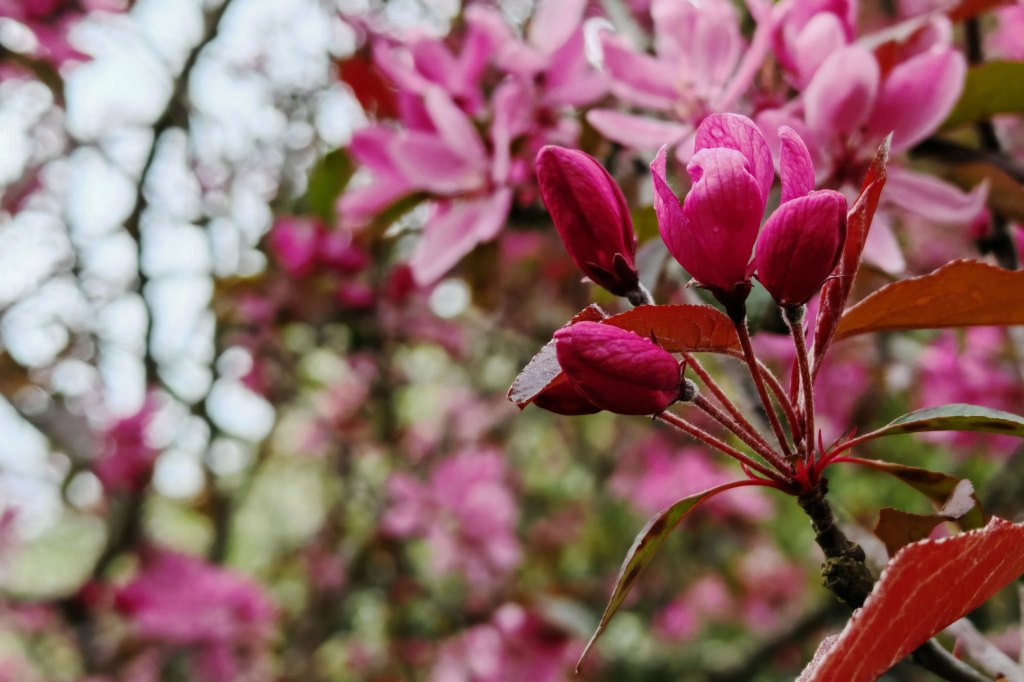
As we found with the Magic 5 Pro, the video options are good for general usage. Footage created is reasonably stable and smooth, and there are some useful functions, such as noise-reduction which work well to reduce things like wind noise. It’s also good to be able to record using all three/four lenses in 4K at 60fps within the same video, as many flagships prevent switching between lenses after you start recording. That said, not having 8K might put off some advanced users, but it’s unlikely to bother most.
Value for Money
Currently at an RRP of £899 and $1,099, the Honor Magic 6 Pro cannot claim to be cheap – but at the time of revision, costs a good slice less than it did upon release.
Considering all the specs you get, and in contrast to other similar models on the market, it offers good value for money.
Consider the Samsung Galaxy S24 Ultra, which will set you back £1,249 for the 256GB model, or £1,349 for the 512GB equivalent to the Honor Magic 6 Pro (which only comes in 512GB). That’s a huge saving.
Similarly, the iPhone 15 Pro will cost you £1199 for the 256GB, or £1,399 for the 512GB equivalent. Another big saving. The closest price of all the major flagships is the Google Pixel 8 Pro – which is cheaper at its lowest price point of £999, but you only get 128GB memory. Otherwise, it’s £1,059 for 256GB or £1,179 for the same 512GB as the Magic 6 Pro.
Put all that together and you’ve got a very well priced device for what you get. It is worth bearing in mind however that unlike those brands mentioned above, the Honor is probably less likely to keep its value when you come to sell or trade up.
Honor Magic 6 Pro Verdict
There’s a lot to like about the Honor Magic 6 Pro. If you’re looking for a high-end smartphone that is well-suited to photography, but, crucially, your budget is somewhat restricted, it’s a fantastic option to go for.
For the price, you get a great set of specifications and a well-performing camera across a variety of different subjects. It very easily holds its own against bigger or more familiar names on the market, including Samsung, Apple and Google.
This is an improvement on the Honor Magic 5 Pro, but probably not enough to warrant an arbitrary upgrade to it. I’d like to have seen a greater leap forward with the portrait mode; but otherwise, the main sensor and its accompanying lens, plus the new periscope lens do a good all-round job.
Aside from photography considerations, the phone has a pleasant design, and features like its extensive battery life are excellent.
As for further negatives, it’s hard to fault the Honor Magic 6 Pro too much. Overall, we consider this one of the best smartphones for photographers out there, and arguably at its price, it’s one which offers the best value (assuming you can buy it in your region).

Specifications
| Ultra-wide camera | 50MP, 13mm equivalent, f/2.0, 1/2.88” sensor |
| Wide camera | 50MP, 23mm equivalent, f/1.4-2.0, 1/1.3” sensor, OIS |
| Telephoto camera | 180MP, 2.5x optical zoom (68mm equivalent), f/2.6, 1/1.49” sensor, OIS |
| Front selfie camera | 50MP, f2.0, 22mm equivalent, AF |
| Display | 6.8-inch Quad-Curved Floating Screen OLED, 2800 x 1280 (FHD+), 120Hz, 5000 nits peak brightness |
| Operating system | MagicOS 8.0 (based on Android 14) |
| Dimensions | 162.5 x 75.8 x 8.9mm |
| Weight | 229g |
Related reading:
Follow AP on Facebook, Twitter, Instagram, YouTube and TikTok.

